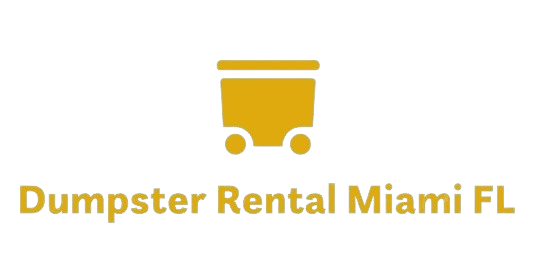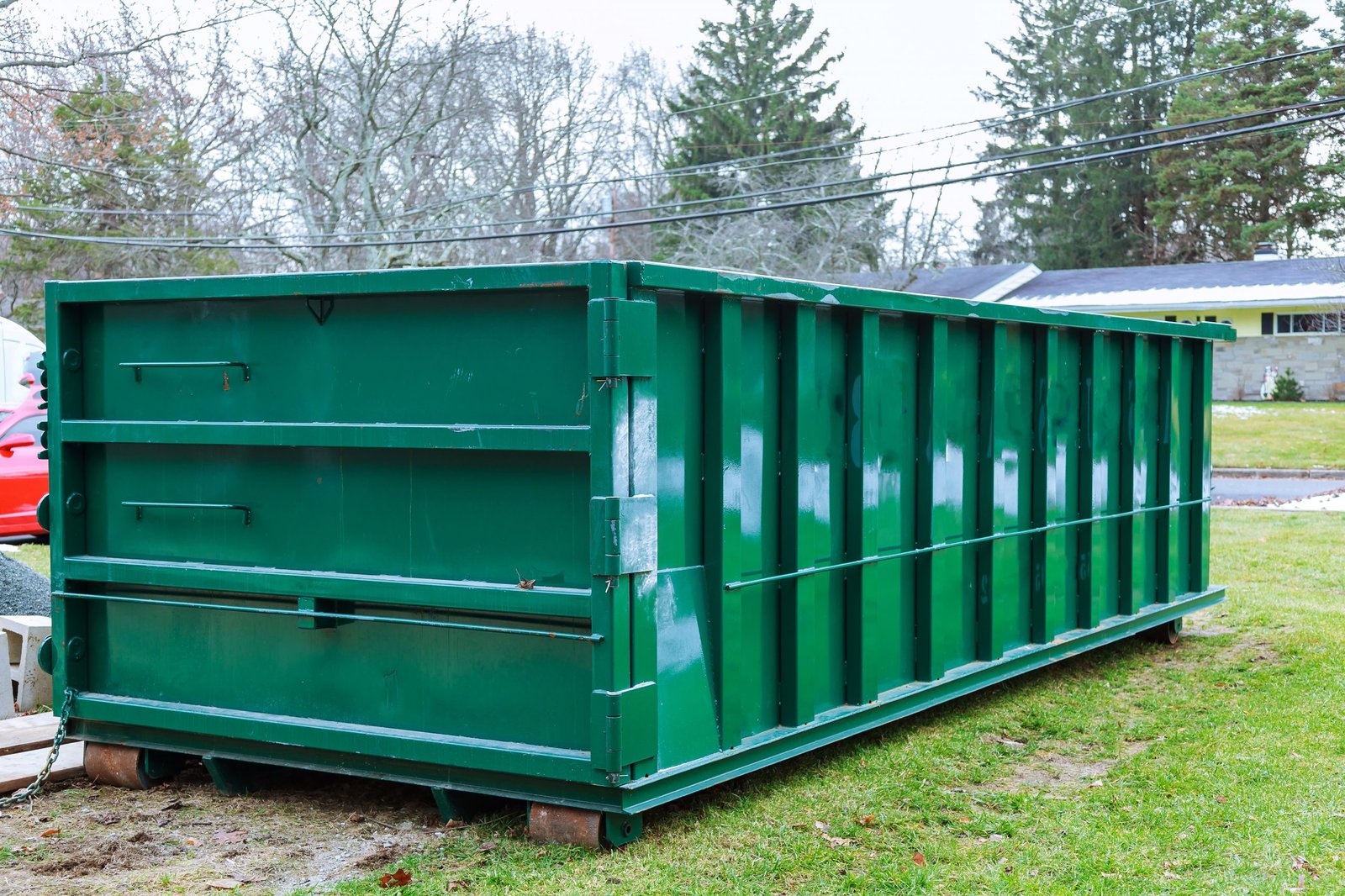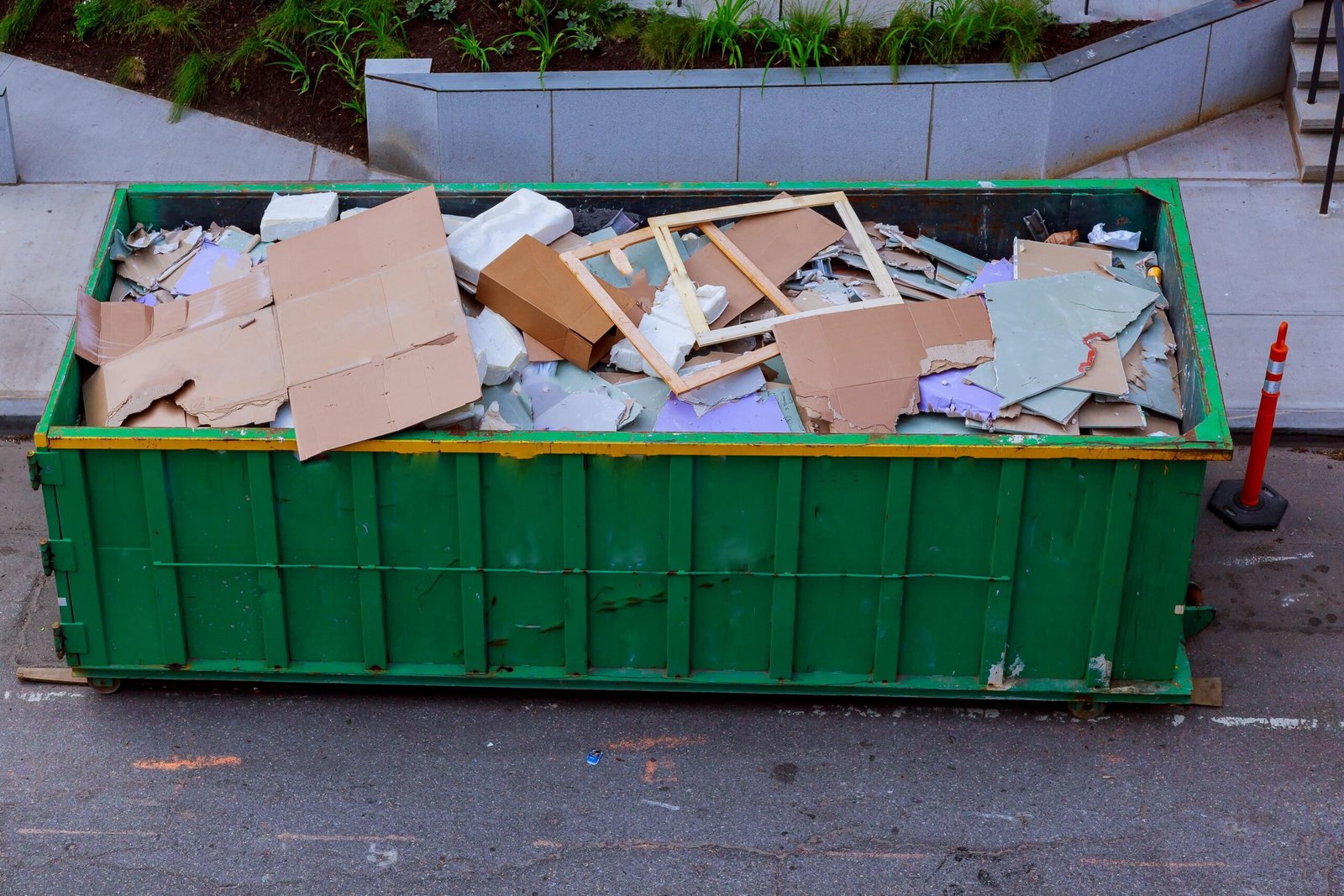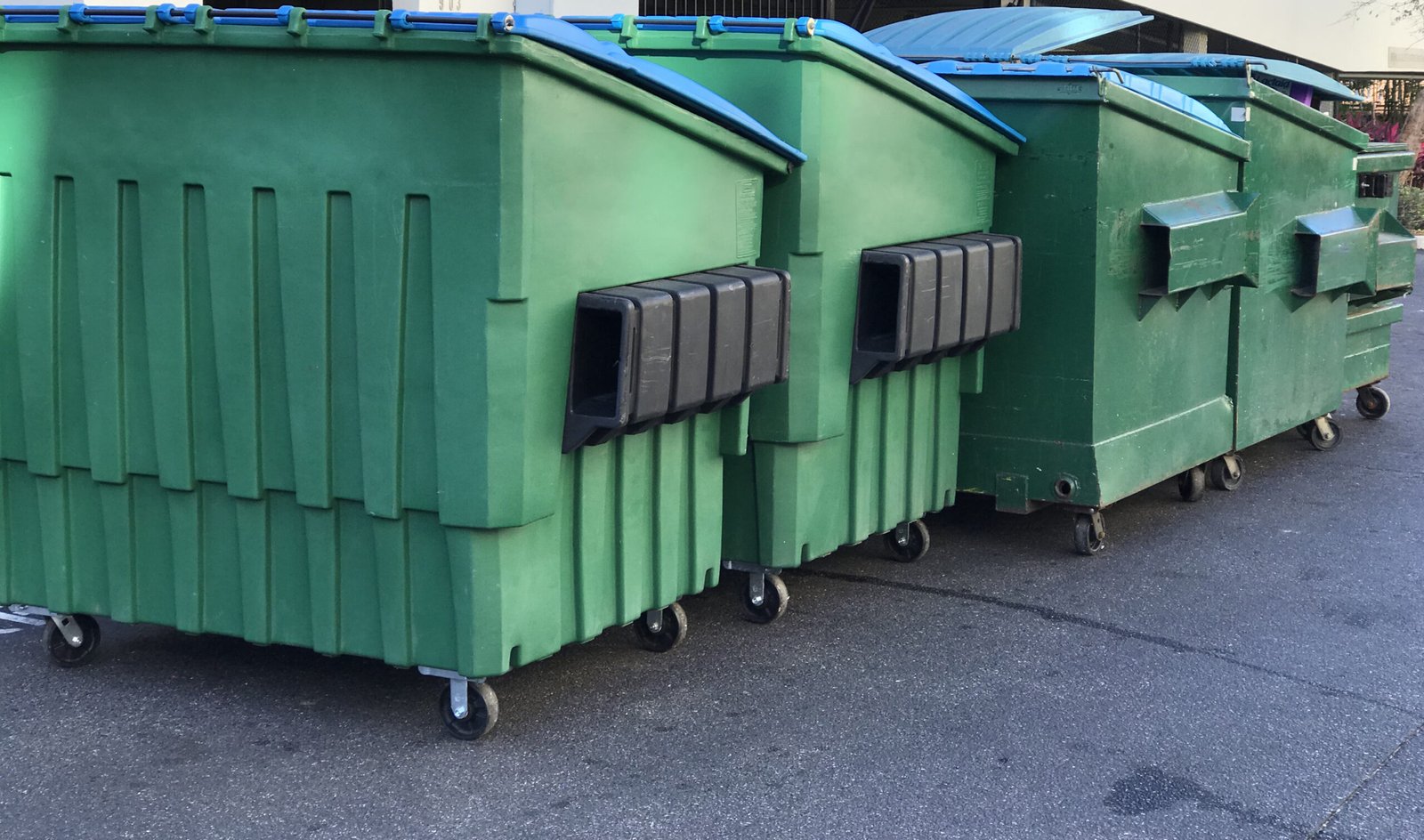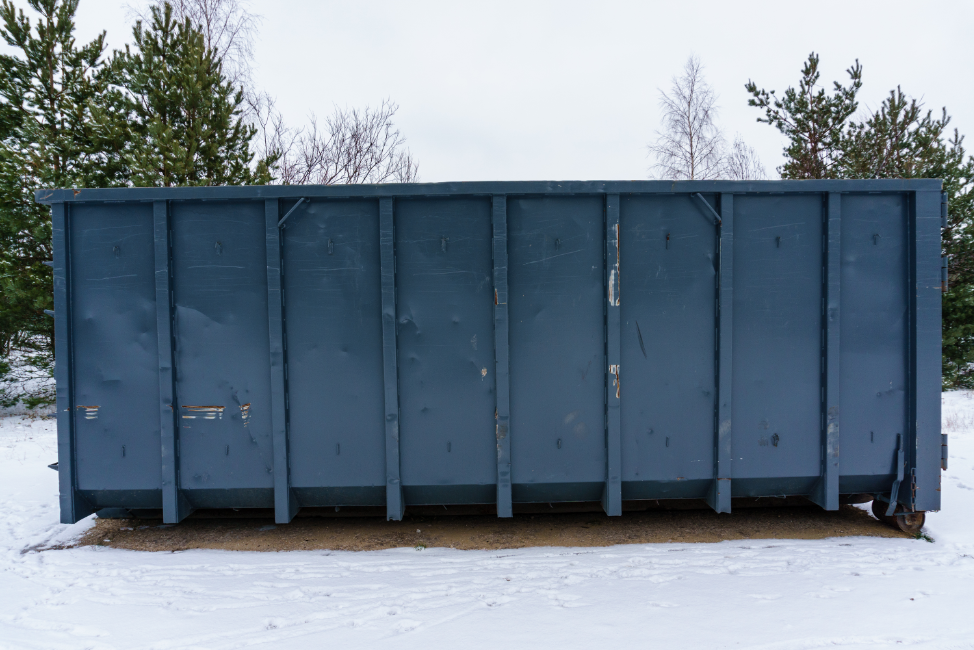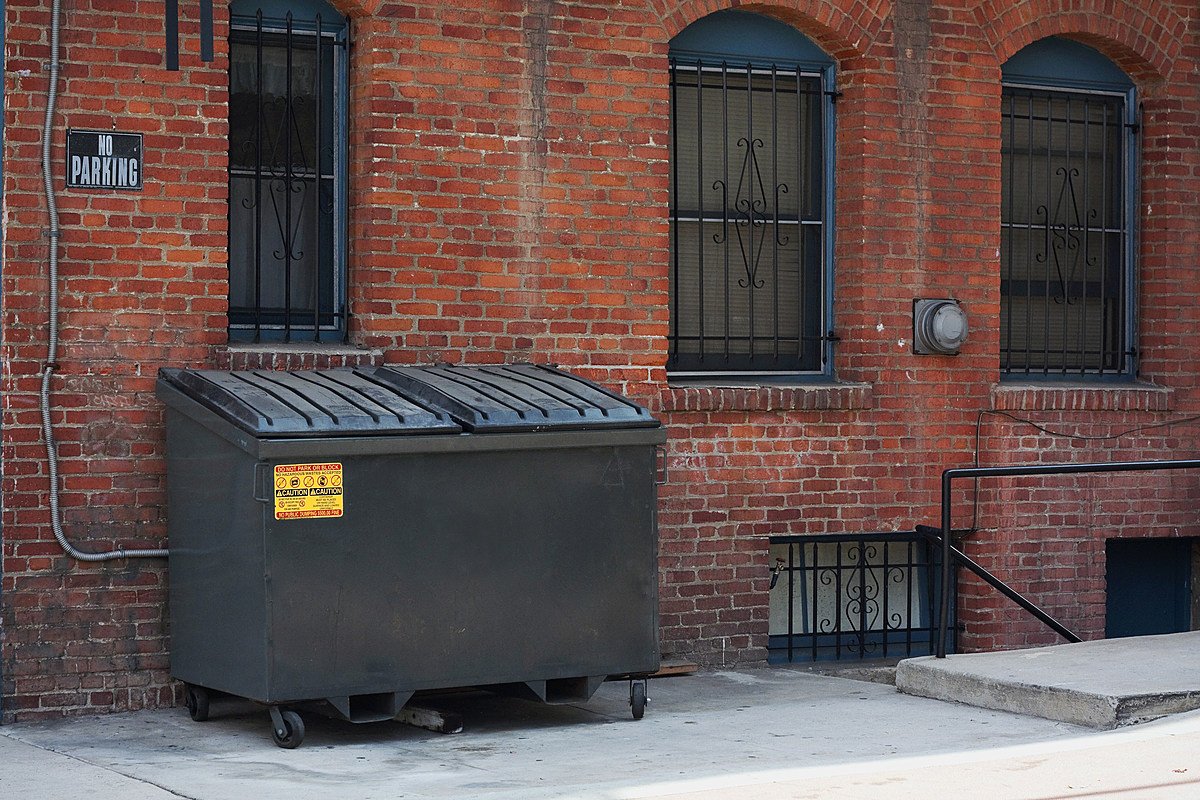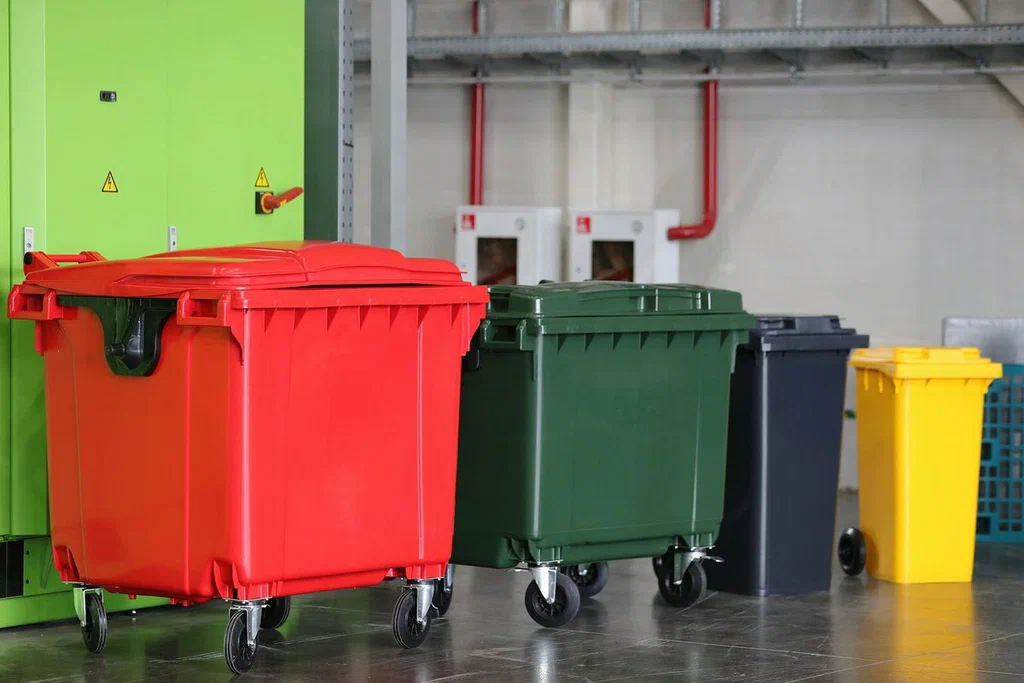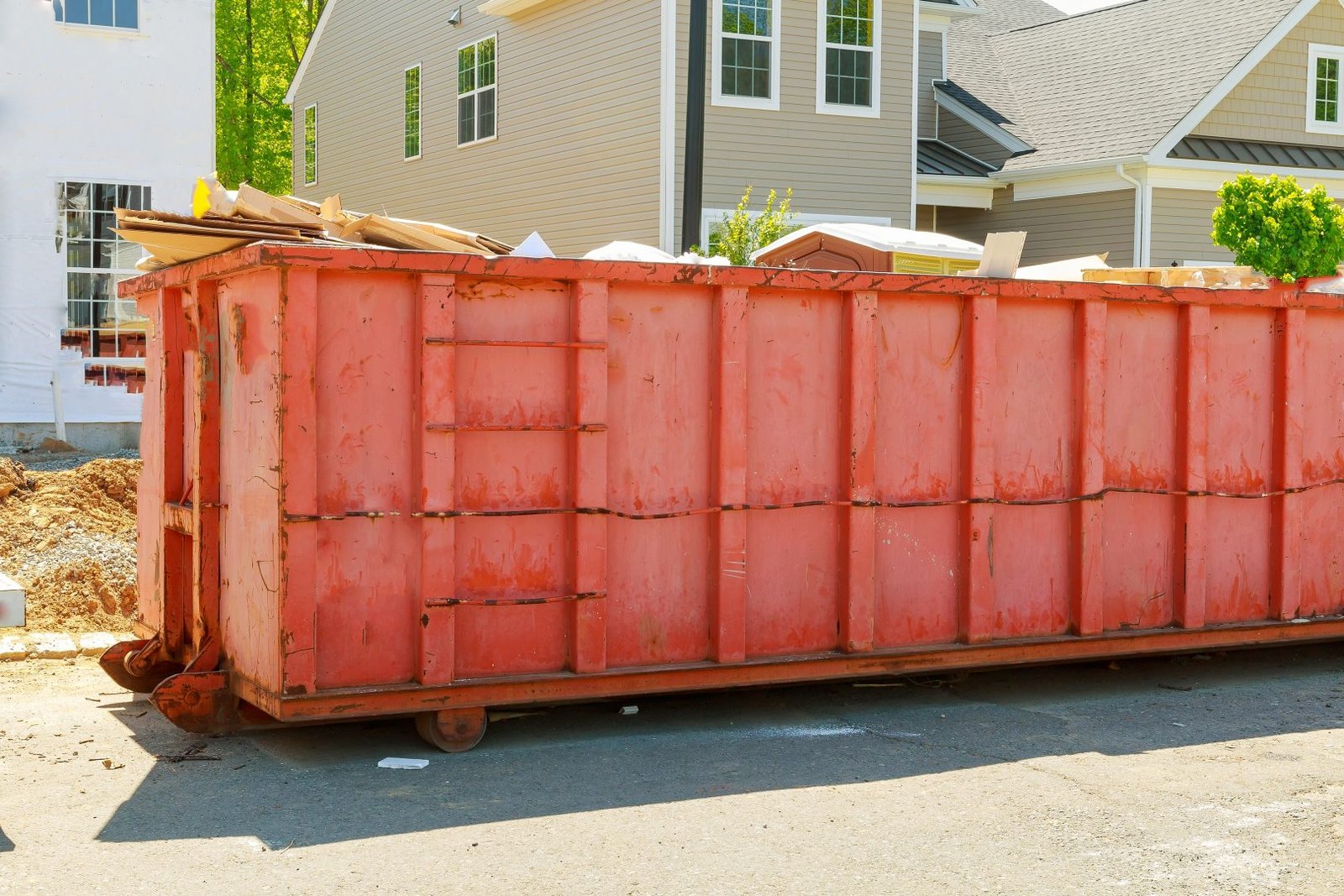The management of waste is a critical aspect of urban living, and dumpster rental policies and regulations play a crucial role in ensuring the efficient disposal of refuse. In Miami, Florida, a bustling metropolitan city known for its vibrant culture and tourism industry, these policies are particularly important due to the high volume of waste generated daily. To illustrate this, let us consider a hypothetical scenario where an event organizer plans a large music festival in downtown Miami. With thousands of attendees expected over multiple days, it becomes imperative for the organizer to navigate the city’s dumpster rental policies and regulations effectively to ensure proper waste management throughout the event.
Efficient waste management not only aids in maintaining cleanliness but also has environmental implications by reducing pollution risks and promoting sustainability. Therefore, understanding the dumpster rental policies and regulations that govern Miami can help individuals, businesses, and organizations make informed decisions regarding appropriate waste disposal methods. This article aims to explore the various aspects related to dumpster rentals in Miami while highlighting specific rules and guidelines enforced by local authorities. By delving into these regulations comprehensively, readers will gain insight into how they contribute to a cleaner environment and promote responsible waste disposal practices within the city limits.
Permit requirements for renting a dumpster in Miami FL
Imagine you are renovating your home in the vibrant city of Miami, Florida. You have accumulated a significant amount of debris and waste materials that need to be disposed of properly. Renting a dumpster seems like an ideal solution, but before you proceed, it is essential to understand the permit requirements associated with dumpster rental in Miami.
Permit Requirements:
When considering renting a dumpster in Miami, there are specific permit requirements that must be met. First and foremost, it is important to determine whether or not you will need a permit based on the nature of your project. For instance, if you plan on placing the dumpster on public property such as sidewalks or streets, a permit is generally required from the relevant municipal authority.
To shed light on this matter further, let us consider an example: Suppose you live in downtown Miami and wish to rent a dumpster to facilitate a large-scale renovation project at your residence. Given that downtown areas often have limited space available for dumpsters and other construction equipment, obtaining a permit would likely be necessary due to potential disruption caused by street closures or parking restrictions.
Understanding the importance of adhering to proper regulations regarding dumpster rentals can help mitigate any unforeseen issues during your renovation project. To better grasp these requirements, here is an emotional bullet point list highlighting key considerations:
- Failure to obtain permits may result in fines or penalties.
- Obtaining permits ensures compliance with local laws and regulations.
- Permits allow authorities to monitor and manage waste disposal effectively.
- Proper documentation provides transparency throughout the process.
In addition to understanding permit requirements through textual information, visual aids can also enhance comprehension. The following table illustrates different types of permits commonly required for various projects within Miami’s jurisdiction:
| Project Type | Permit Required | Fee (USD) |
|---|---|---|
| Residential Renovation | Building Permit | $250 |
| Commercial Construction | Zoning Permit and Building Permit | $500 |
| Street Closure | Right-of-Way (ROW) Permit | $1000 |
| Temporary Dumpster Rental | Temporary Use of Streets Permit | $350 |
In summary, renting a dumpster in Miami requires careful attention to permit requirements. Failure to obtain the necessary permits can lead to potential complications and penalties. By understanding the importance of adhering to these regulations, you can ensure a smooth and hassle-free waste disposal process during your renovation project.
Moving forward, let us explore the restrictions on what can be disposed of in a dumpster in Miami FL, ensuring that your waste management practices align with local guidelines.
Restrictions on what can be disposed of in a dumpster in Miami FL
Permit Requirements for Renting a Dumpster in Miami FL
Let’s take a closer look at the permit requirements for renting a dumpster in Miami, Florida. To provide an example, imagine you are planning to renovate your home and need to rent a dumpster to dispose of the construction debris.
Before you can proceed with renting a dumpster in Miami, it is essential to understand the necessary permits that may be required. This ensures compliance with local regulations and helps maintain environmental standards. In most cases, residential customers do not require any special permits for temporary dumpster rentals. However, commercial customers or those working on larger projects may need to obtain specific permits from the appropriate authorities.
To simplify this information, here is a bullet point list outlining the key points regarding permit requirements:
- Residential customers typically don’t need permits.
- Commercial customers may need specialized permits.
- Check with local authorities for specific permit requirements.
- Non-compliance with permit regulations can result in penalties or fines.
Now, let’s shift our focus towards understanding what items can and cannot be disposed of in dumpsters rented within Miami FL. But before we move forward, let’s explore some examples of prohibited items:
| Prohibited Items | Reason for Prohibition | Alternative Disposal Options |
|---|---|---|
| Hazardous Waste | Potential harm to humans | Contact local disposal facilities |
| Electronics | Environmental contamination | Recycle through designated centers |
| Tires | Damage landfill infrastructure | Return them to retailers or tire dealerships |
| Medical Waste | Risk of spreading infections | Use authorized medical waste disposal services |
As we delve into the topic of prohibited items further, we will gain insight into how responsibly managing waste plays a vital role in maintaining public health and preserving the environment.
Next up: Restrictions on what can be disposed of in a dumpster in Miami FL
Prohibited items for disposal in Miami FL dumpsters
Section Transition:
Having explored the restrictions on acceptable materials for disposal, it is crucial to understand the prohibited items that must not find their way into Miami FL dumpsters. This knowledge ensures compliance with local regulations and helps maintain safety within waste management processes.
Prohibited Items for Disposal:
To illustrate the importance of adhering to these guidelines, consider the hypothetical case of a construction company working on a project in downtown Miami. In an attempt to dispose of excess building materials quickly, they unknowingly toss hazardous waste such as asbestos-containing insulation into the rented dumpster. Unfortunately, this oversight leads to severe consequences not only for themselves but also for the environment and public health.
It is vital to remember that certain items are strictly forbidden from being placed inside dumpsters due to potential hazards or legal constraints. To ensure proper waste management and avoid penalties, here are some examples of commonly prohibited items:
-
Hazardous Materials:
- Asbestos
- Lead-based paint
- Pesticides
- Batteries
-
Flammable Substances:
- Gasoline
- Propane tanks
- Oil-based paints/solvents
-
Electronic Waste (e-waste):
- Computers/laptops
- Televisions
- Printers/scanners/copiers
-
Medical Waste:
- Needles/syringes
- Medications
The presence of these prohibited items poses significant risks both during transportation and at landfill sites, including:
- Environmental contamination leading to soil and water pollution.
- Increased fire hazards jeopardizing worker safety.
- Potential harm to wildlife through exposure to toxic substances.
- Degradation of air quality caused by improper disposal methods.
Emotional Table:
| Prohibited Items | Reasons for Prohibition |
|---|---|
| Asbestos | Carcinogenic |
| Lead-based paint | Neurological toxicity |
| Pesticides | Ecological harm |
| Batteries | Heavy metal leakage |
In light of these risks and their potential consequences, it is crucial to exercise caution when disposing of waste materials. By adhering to the guidelines set forth by local authorities, individuals can contribute to a safer and more sustainable community.
Understanding what items are not allowed in dumpsters paves the way for comprehending the proper procedures involved in filling and loading them. In the following section, we will delve into the guidelines that ensure efficient disposal practices while maintaining safety standards within Miami FL dumpster rentals.
Guidelines for filling and loading a dumpster in Miami FL
Dumpster Rental Policies and Regulations: Miami FL
Prohibited items for disposal in Miami FL dumpsters have been outlined to ensure the safety, environmental compliance, and efficient operation of waste management services. One example that illustrates the importance of these regulations is the case of a local construction company that disregarded such guidelines by disposing hazardous materials into a rental dumpster. As a result, not only did this compromise the integrity of the dumpster but also posed potential risks to both human health and the environment.
To uphold proper waste disposal practices, it is crucial to be aware of the prohibited items when utilizing dumpsters in Miami FL. The following bullet point list highlights some common examples:
-
Chemicals and toxic substances:
- Paints
- Solvents
- Pesticides
-
Electronic waste:
- Computers
- Televisions
- Batteries
-
Construction debris exceeding weight limits:
- Concrete blocks
- Bricks
- Roofing materials
-
Medical or biological waste:
- Needles
- Pharmaceuticals
- Infectious materials
It is essential to note that this list is not exhaustive, as specific regulations may vary depending on local ordinances and service providers. To gain a comprehensive understanding of what can or cannot be disposed of in Miami FL dumpsters, individuals should consult with their respective waste management companies or refer to official municipal guidelines.
By adhering to these prohibitions, we contribute to maintaining public safety, preserving the environment, and ensuring smooth operations within our community’s waste management infrastructure.
Moving forward into the next section about “Guidelines for filling and loading a dumpster in Miami FL,” it is important to consider additional factors that promote responsible usage while maximizing efficiency. Following appropriate safety precautions will further enhance our collective efforts towards effective waste management.
Safety precautions for using a dumpster in Miami FL
In order to ensure the safe and efficient use of dumpsters in Miami FL, it is important to follow specific guidelines when filling and loading them. By adhering to these regulations, individuals can prevent accidents, protect the environment, and avoid penalties or fines.
One example that illustrates the importance of following proper procedures involves a construction company operating in Miami FL. The company rented a dumpster but failed to properly load it according to local regulations. As a result, loose debris fell out during transportation, causing damage to neighboring properties and creating potential hazards on the road. This incident highlights the need for strict adherence to guidelines when using dumpsters.
To help facilitate compliance with regulations, here are some key guidelines for filling and loading dumpsters:
- Segregate waste: Separate different types of waste materials before placing them into the dumpster. This allows for easier recycling and disposal processes.
- Avoid overloading: Do not exceed the maximum weight limit indicated by the dumpster rental company. Overloaded dumpsters can lead to structural instability and make transportation unsafe.
- Cover your dumpster: Always cover your dumpster when not in use. This prevents rainwater from accumulating inside and discourages unauthorized dumping of waste.
- Properly secure items: Ensure that all items placed inside the dumpster are securely positioned so they do not shift or fall out during transportation.
The following table provides an overview of common materials accepted by most dumpster rental companies in Miami FL:
| Material | Accepted? |
|---|---|
| Construction debris | Yes |
| Household waste | Yes |
| Yard waste | Yes |
| Hazardous substances | No |
By strictly adhering to these guidelines while utilizing dumpsters, residents and businesses in Miami FL can contribute to a cleaner environment and safer communities.
Transitioning into the subsequent section about “Penalties and fines for violating dumpster rental regulations,” it is essential to understand the consequences of not following these guidelines.
Penalties and fines for violating dumpster rental regulations in Miami FL
Having discussed the safety precautions associated with renting dumpsters in Miami FL, it is crucial to understand the policies and regulations governing their use. Familiarizing yourself with these guidelines can help avoid potential violations that may result in penalties or fines. Let us delve into some of the key considerations when it comes to adhering to dumpster rental rules in Miami.
Policy Compliance Measures:
To ensure compliance with dumpster rental regulations, individuals are expected to adhere to certain measures outlined by municipal authorities. Failure to comply with these measures may lead to financial penalties or other consequences. Here is an example highlighting the importance of policy compliance:
Case Study Example:
A local construction company recently faced legal repercussions due to improper disposal of hazardous materials in rented dumpsters. This violation not only resulted in significant environmental damage but also led to severe financial penalties imposed on the company. Such incidents highlight the necessity of understanding and abiding by dumpster rental policies.
Key Policies and Regulations:
- Prohibited Materials: Dumpsters have strict limitations regarding what items can be disposed of within them. Commonly prohibited materials include hazardous waste, flammable substances, chemicals, medical waste, batteries, and electronic devices.
- Weight Restrictions: Each dumpster has a specified weight limit that must not be exceeded. Overloading a dumpster poses safety risks for both users and collection personnel while potentially leading to additional charges.
- Placement Guidelines: Proper placement of dumpsters is essential to prevent obstruction of public areas such as sidewalks or roadways during delivery or pickup operations.
- Time Limits: Dumpster rentals typically come with predetermined time limits, beyond which additional fees may incur if the unit remains on-site longer than agreed upon.
- Violating policies compromises community well-being and environmental safety.
- Non-compliance can result in legal consequences, financial penalties, or damage to reputation.
- Adhering to regulations promotes a cleaner and safer environment for all residents.
- Proper disposal practices ensure the longevity of dumpster rental services for future use.
Emotional Table:
| Violation Type | Consequences | Impact on Community |
|---|---|---|
| Improper Waste Disposal | Environmental Damage | Water and Soil Contamination |
| Overloading Dumpsters | Safety Hazards | Injury Risk to Users |
| Placing Dumpsters Illegally | Public Nuisance | Obstruction of Pedestrian Traffic |
| Exceeding Time Limits | Financial Penalties | Limited Availability for Others |
In summary, understanding and adhering to dumpster rental policies and regulations are critical in Miami FL. By complying with these guidelines, individuals contribute to community well-being while avoiding potential penalties or fines associated with violations. It is essential to prioritize responsible waste management practices within the context of renting dumpsters in order to maintain a clean and safe environment for all residents.
